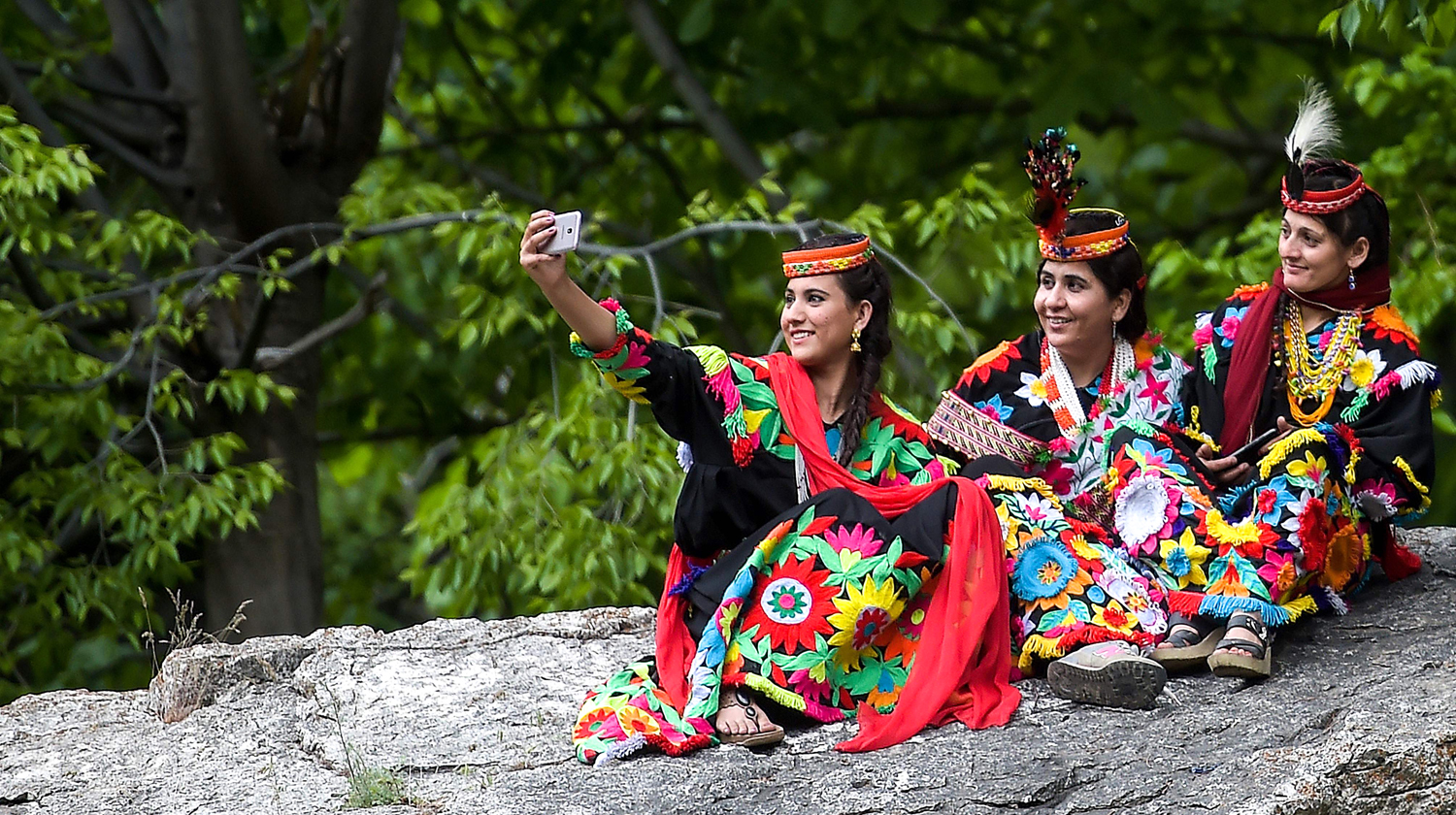

In a remote valley in Pakistan dozens of Kalash minority women dance to celebrate spring’s arrival — but as a gaggle of men scramble to catch them on camera, the community warns an influx of domestic tourists is threatening their unique traditions.
Every year the Kalash — a group of less than 4,000 people confined to a handful of villages in the north — greet the new season with animal sacrifices, baptisms, and weddings at a festival known as “Joshi”.
As celebrations kick off, tourists with phones jostle to get close to Kalash women, whose vibrant clothing and headdresses contrast starkly with the more modest attire worn by many in the conservative Islamic republic.
“Some people are using their cameras as if they were in a zoo,” said local tourist guide Iqbal Shah.
Known for their pale skin and light-coloured eyes, the Kalash have long claimed ancestral links to Alexander the Great’s army — who conquered the region in the fourth century BC.
They worship many gods, drinking alcohol is a tradition and marriages of choice are the norm — unlike in the rest of Pakistan where unions are often arranged.
However, the community is far from a liberal beacon. Members of the community often wed in their teens, with women poorly educated and expected to perform traditional roles in the home.
Stories about the Kalash are nonetheless frequently fabricated, and this has been amplified in recent years by the proliferation of smartphones and social media.
‘Defaming the community’
One video viewed 1.3 million times on YouTube, proclaims the Kalash “openly have sex” with partners of their choosing “in the presence of their husbands”.
Another calls them “beautiful infidels”, saying “anyone can go and marry any girl there”.
“How could that be true?” asks Luke Rehmat, a Kalash journalist.
“People are systematically trying to defame the community. They are fabricating stories... when a tourist comes with such a mindset, he will try to experience [it].”
In the main Kalash village of Bumburate a hotel manager estimates that about 70 percent of Pakistani tourists visiting his establishment are young men, who often inquire about where to “find girls”.
According to tourists who spoke to AFP — most of whom were men travelling in groups — their primary interest in exploring the Kalash Valley was to learn about a new culture.
“We want to be part of this festival but it doesn’t mean that we want to mix up with girls,” says tourist Sikander Nawaz Khan Niazi from Lahore.
But friction has been increasing in recent years.
In Bumburate, posters now call on visitors to seek permission from villagers before photographing and signs warn tourists not to harass women.
“If they don’t respect us, we don’t need tourists,” says Yasir Kalash, the vice president of the local hotel association.
“If they respect... our culture and traditions, we must welcome [them].”
Regulating tourism is a cumbersome but vital task for the Kalash, with money from the industry increasingly providing an important source of revenue for the community. — AFP
Oman Observer is now on the WhatsApp channel. Click here



